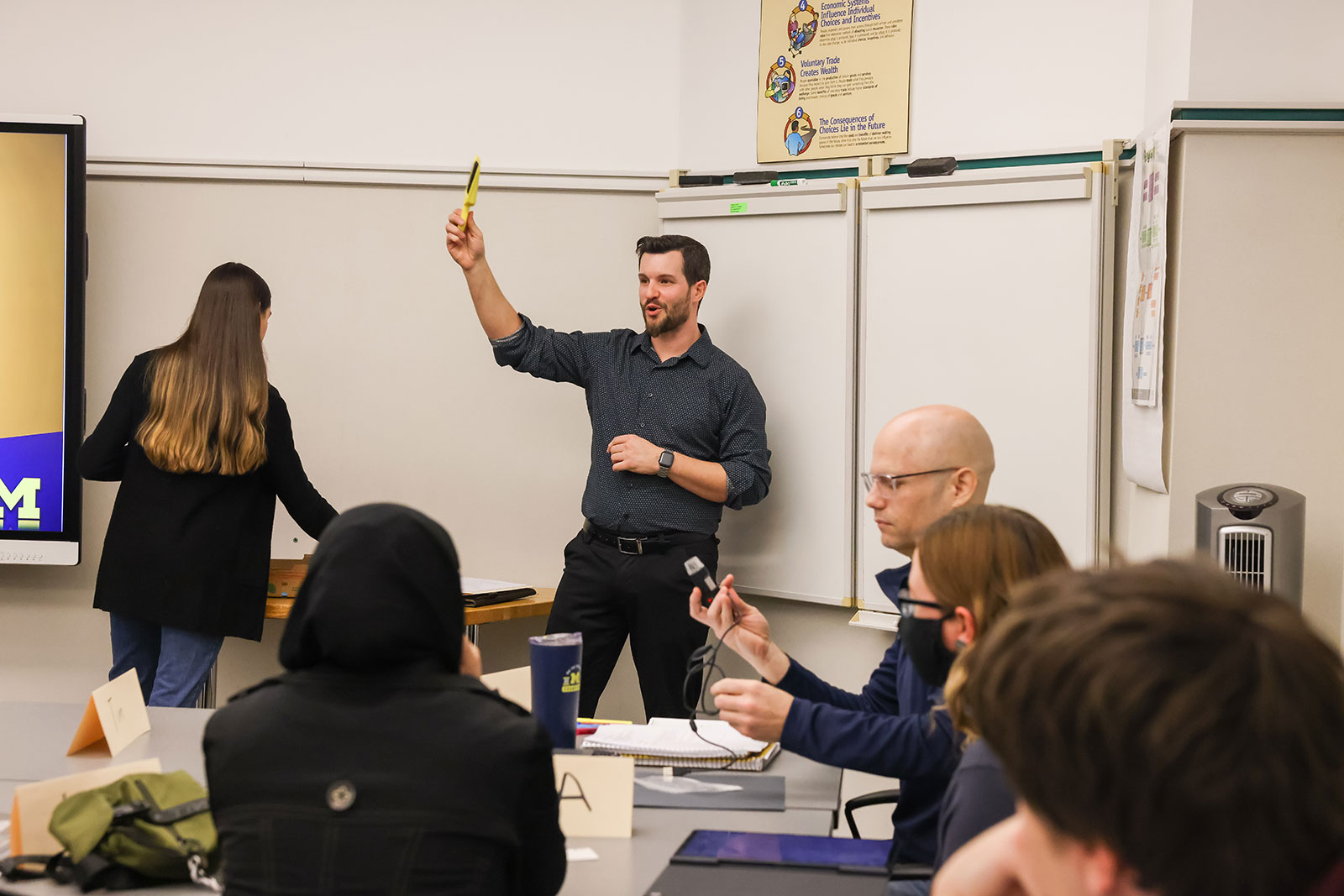Related Resources
 Reach the Pinnacle in Education Studies
Reach the Pinnacle in Education Studies
Whatever your aspirations may be in your career as an educator, the Doctorate in education from the University of Michigan-Dearborn will help you fulfill them. This degree provides the knowledge, skills, and credentials you need to conduct education research, teach at a college or university, work in education policy making, fill a top administrative role in PK-12 or postsecondary education, and so much more.
Where a Doctorate in Education Will Take You
Pretty much anywhere you want. The degree will give you the knowledge and tools to transform education wherever you work, whether you lead a PK-12 public school district, take a major administrative role at a college or university, teach future educators at the postgraduate level, conduct your own research into educational questions or problems, or contribute in some other way.
